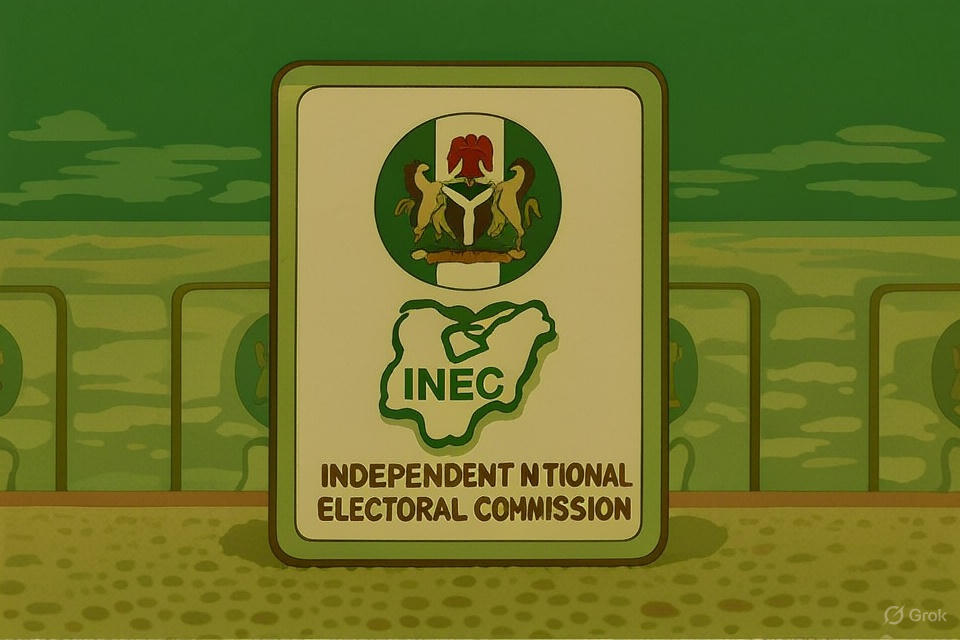
Daniel Otera
Two years after Nigeria’s fiercely contested 2023 general elections, doubts over the credibility of the process remain unresolved. This week, the Independent National Electoral Commission (INEC) hosted a peer review team from the ECOWAS Network of Electoral Commissions (ECONEC), seeking answers on the Commission’s handling of electoral reform.
The delegation’s visit comes ahead of several off-cycle governorship elections and amid growing public scepticism about the integrity of Nigeria’s electoral system.
At a closed-door meeting in Abuja, INEC Chairman, Professor Mahmood Yakubu, told the visiting team that 13 of the 37 recommendations submitted by ECOWAS after the 2023 polls were directed specifically at the Commission. The remaining 24, he said, were addressed to other stakeholders including the National Assembly, Nigeria Police Force, National Broadcasting Commission, civil society groups, and political parties.
“We have considered all the recommendations requiring administrative action. The rest are awaiting the National Assembly’s ongoing legal review,” Yakubu said.
Although INEC did not release a detailed public breakdown of the 13 points, the ECOWAS report highlighted key issues including result transmission, collation procedures, election-day logistics, and polling unit violence.
The ECONEC delegation said its visit aimed to evaluate INEC’s level of implementation and draw lessons for other electoral bodies across West Africa.
“We see this as a learning exercise. Nigeria’s scale and complexity make it a test case for all of us in the region,” said ECONEC Head of Mission and Liberia’s National Elections Commission Chairperson, Mrs Davidetta Browne-Lansanah.
She also acknowledged Nigeria’s technical support for Liberia’s electoral system, particularly through ICT and logistics.
“Because of your intervention, we now have an ICT room,” she added, praising INEC’s contribution to regional capacity building.
Despite INEC’s assurances, trust in Nigeria’s electoral process remains low. A post-election survey conducted by Afrobarometer and NOI Polls in 2023 found that only 23 percent of Nigerians believed the elections were “free and fair”. Over 56 percent expressed doubt about the transparency of the process.
The report also revealed that seven in ten respondents had little or no trust in INEC, citing failed result uploads, logistics breakdowns, and perceived political interference.
One of the most controversial issues was the underperformance of the Bimodal Voter Accreditation System (BVAS). According to Yiaga Africa’s 2023 election observation report, results were not uploaded to the INEC Result Viewing (IReV) portal in nearly 27 percent of polling units during the presidential vote.
In Delta, Kano, and Benue States, the group observed that BVAS either malfunctioned or was replaced in more than 15 percent of polling units, resulting in delays and confusion at voting centres.
“BVAS was meant to increase public trust, but the late-night uploads, lack of real-time access, and inconsistent deployment damaged its credibility,” Yiaga noted in its post-election statement.
The ECOWAS report echoed this concern, listing transparency and real-time result publication as key areas for urgent reform.
With the 2027 general elections approaching, legal and structural reforms remain stuck in legislative bottlenecks. INEC has submitted proposals to the National Assembly seeking the establishment of an Electoral Offences Commission, a Political Parties Regulatory Commission, and constitutional powers to appoint its own Resident Electoral Commissioners.
“The reforms we are pursuing cut across constitutional and legal frameworks. Some are administrative and already being implemented, but others need legislative backing,” Yakubu said at a press briefing in May 2025.
Progress, however, has been slow. According to the Policy and Legal Advocacy Centre (PLAC), the National Assembly is not expected to complete relevant amendments until late 2025. As of June, no significant changes to the Electoral Act 2022 had been passed. Key proposals including stricter campaign finance rules, expanded result transmission powers, and transparency in REC appointments remain at committee level.
International assessments reflect the urgency of reform. The Global State of Democracy Report 2024, published by International IDEA, ranked Nigeria 115th out of 167 countries in electoral integrity behind Ghana, Senegal, and Sierra Leone.
“Without institutional independence and legislative clarity, electoral commissions are often left fighting political interference with one hand tied behind their backs,” the report noted.
With civic trust at historic lows and electoral reforms still delayed, analysts warn that Nigeria risks entering the 2027 election cycle with the same unresolved flaws that marred 2023.
Unless urgent legislative and institutional action is taken, questions around INEC’s credibility are unlikely to fade.
